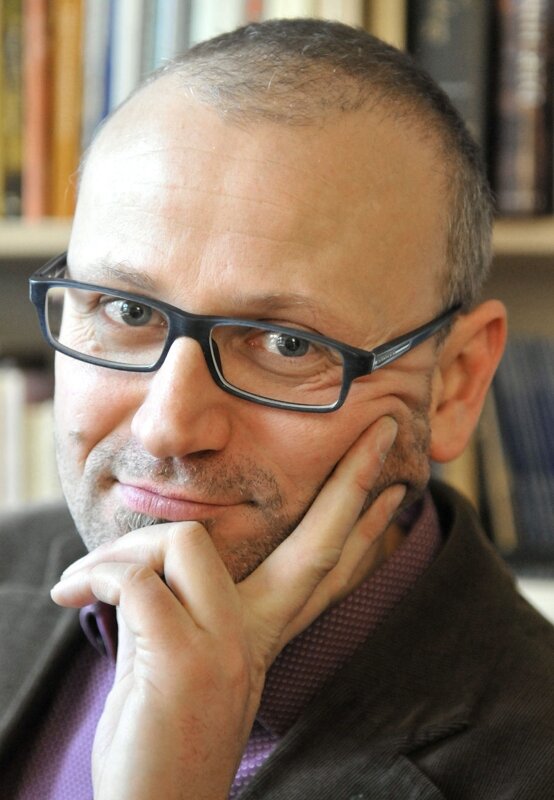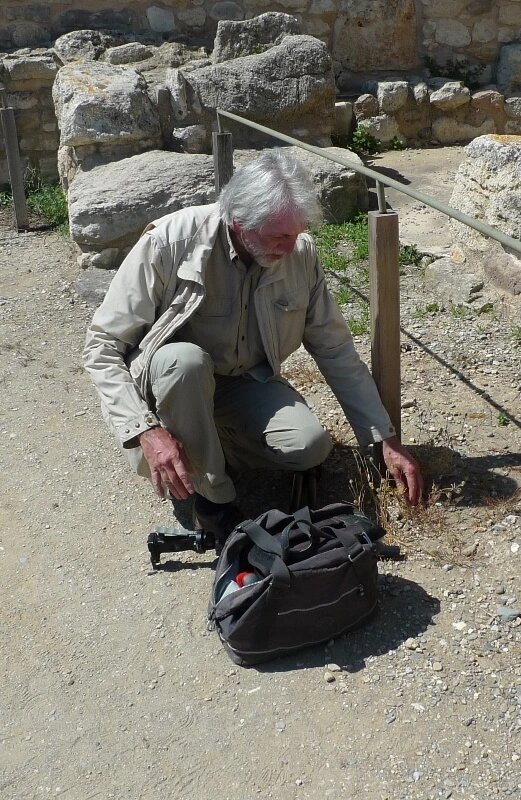The exhibition “Related beings: Cereals in transition” will be inaugurated on 23rd of June 2023 at 12 pm as part of the annual ethnological summer symposium organized by the Frobenius Institute (FI).
The idea of the exhibition was developed by Peter Berger and René Cappers when they were at the FI as Mercator visiting professors between March and June 2023. Next to these two, the team realizing the exhibition consisted of Marius Heimer (technical support), Jennifer Markwirth (layout) and Peter Steigerwald (digitization of the photo negatives and slides / production and mounting of the prints).
Dr. Peter Berger
University of Groningen, Faculty of Theology and Religious Studies, Associate Professor of Indian Religions and the Anthropology of Religion
 Photo: Elmer Spaargaren
Photo: Elmer Spaargaren
Prof. René Cappers
University of Groningen, Groningen Institute of Archaeology, Professor of Archaeobotany
 Photo: privat
Photo: privat
Cereals grow humans; termites cultivate fungi; a palm-tree nurses newborn human twins; an iron object becomes alive to ward off a sorcery attack; a female shaman (alias the earth goddess) uses her agricultural tools not for processing cereals, but to grind earth and pound dust; human blood is sprinkled over the soil and every kind of grain originates; termites evolve from cereals.
In their myths, rituals and agricultural practices, indigenous communities (Adivasi) inhabiting the highlands of Central India called the Eastern Ghats demonstrate the entanglement of a multitude of beings. Adivasi livelihoods based on the cultivation of rice and millets, especially finger millet, are currently the target of massive state interventions. Because of their nutritional properties, drought and disease resistance and low ecological footprint, millets have recently been discovered as the “smart food” for the future and 2023 has been declared as the UN International Year of Millets. Accordingly, state funded “Millet Missions” promote the cultivation, distribution and consumption of millets, also among the Indian urban middle classes.
As part of three international collaborative projects on “Cereal Cultures” (funded by the German Research Foundation (DFG) and the Dutch Research Council (NWO)) socio-cultural anthropologists and archaeobotanists investigate these ongoing dynamics between local cultivation practices and worldviews in relation to the policy measures of NGOs and the state, also against the backdrop of shifts in cultivation practices in the past.
This exhibition highlights some aspects of these processes. The sub-title “Cereals in transition” refers to different dimensions of transformations. First, farmers have been choosing between different kinds of grain since the beginning of agriculture, favoring at a certain moment in history one cereal over another. The specific properties and affordances of cereals have often been crucial in this selection process, for instance, with regard to the amount of labor that needs to be invested. Second, the current policy measures introduce new crops, new technologies, new food products and thereby transform local practices. Finally, “Cereals in transition” refers to the local worldviews of interrelated beings mentioned above, in which humans, animals and plants potentially and situationally transform into one another, especially in the domains of myth and ritual. The fundamental activity in this process is sacrifice, as it is blood that is the major catalyst and agent of transformation. From the local point of view, sacrifice and agriculture are necessarily intertwined in the attempt to navigate the flow of life.
Die Ausstellung wird im Rahmen unseres Sommersymposiums im Flur des Frobenius-Instituts im IG-Farben-Haus am Campus Westend der Goethe-Universität um 12 Uhr eröffnet.







